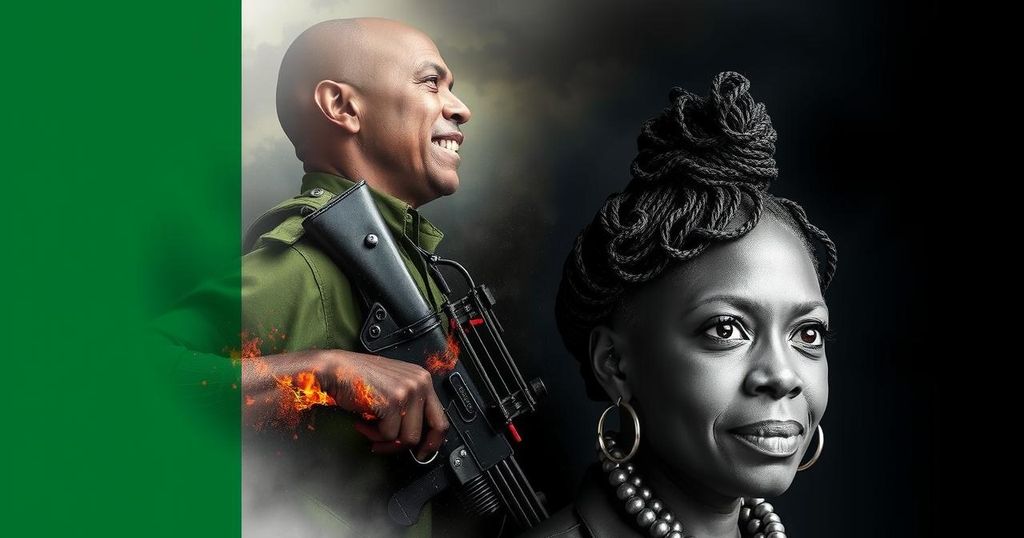The recent AFCON qualifier between Libya and Nigeria was marred by accusations and unsporting behavior that heightened diplomatic tensions. The Nigerian team faced severe challenges during their stay in Libya, raising concerns about safety and welfare in international sports. The event exemplifies ongoing issues within African football regarding governance, disunity, and the need for more rigorous disciplinary actions.
The recent Africa Cup of Nations (AFCON) qualifier match between Libya and Nigeria, scheduled for October 15, 2024, has left many football enthusiasts, particularly Nigerians, in a state of disbelief. Once caught in a sporting event meant to unite and showcase national excellence, the game has instead been marred by international disgrace and allegations of hostility. The complexities of this matchup date back to the initial leg held in Uyo, Akwa Ibom State, where both teams engaged in a deluge of accusations. The Libyan delegation alleged mistreatment from Nigerian officials and fans, citing poor hospitality, inadequate transportation, and outright hostility. Conversely, Nigerian representatives claimed that the Libyans had engaged in provocations designed to upset the Super Eagles’ performance. Despite these claims, eyewitness testimonies suggest that although there were some protocol lapses, the Libyan allegations were largely inflated, if not concocted, as a psychological tactic ahead of the crucial second leg. On the field, the match exemplified the darker side of sportsmanship. Libya’s game was characterized by disruptive tactics, including excessive time-wasting and blatant fouls. A notable incident involved the disallowance of a clear goal by Nigeria’s Ademola Lookman, an egregious error that left many supporters questioning the integrity of officiating, suggesting that external processes may have influenced refereeing decisions. Upon arriving in Libya, the Nigerian team encountered severe challenges. Reports indicate they experienced significant delays and discomfort, being denied basic amenities and subjected to isolation within an airport area. They were even barred from boarding their pre-arranged transport, compounded by an unexpected rerouting of their chartered flight. Such adversities raised concerns regarding the safety and morale of the visiting team, steering the experience into a realm of deliberate psychological intimidation. This sequence of events further necessitates scrutiny of the roles played by the Confederation of African Football (CAF) and FIFA in addressing unsporting conduct. Historically, both organizations have been criticized for their passive responses to such incidents, leading to a pattern of impunity. This passivity raises pressing questions regarding the impact of these events on goodwill and unity within the African football community. The Libya-Nigeria debacle exacerbates existing issues of administrative incompetence and negative perceptions surrounding African football. When sporting events devolve into diplomatic conflicts, it not only undermines the spirit of competition but also paints a bleak picture of the continent’s ability to collaborate. As Africa strives for unity in various sectors, the question remains: how can football, a potential catalyst for peace, become a battleground for animosity? To mitigate future occurrences, it is imperative that both CAF and FIFA adopt a more stringent approach to disciplinary measures. Enhanced penalties for unsporting behavior and stricter oversight of host nations regarding the welfare of visiting teams must be instituted. Additionally, football federations across Africa should emphasize sports diplomacy, using tournaments as platforms for fostering goodwill and cultural exchange rather than instigating rivalry. In conclusion, the events surrounding the Libya-Nigeria match serve as a stark reminder of the work that remains in nurturing a spirit of camaraderie within African football and the broader continent. It is a call to action for all involved to strive towards a unified future, marked by collective spirit and collaboration, rather than division and chaos. Only through mutual respect and shared objectives can African football ascend to new heights.
The context of the Libya vs Nigeria AFCON qualifier highlights the broader challenges faced in African football, navigating issues of sportsmanship against a backdrop of diplomatic relations and national pride. The narrative is not merely about football but signifies deeper socio-political tensions that can ensue when sports and national identities collide. Understanding this history is crucial to grasping the potential implications for cohesion within the African football community and beyond.
The tensions observed during the recent Libya-Nigeria match underscore the fragility of sportsmanship as it intertwines with national identities and international relations. There exists a pressing need for improved governance and accountability within football administration while fostering an environment conducive to collaboration and mutual respect. The potential for football to be a unifying force across the continent remains viable, contingent upon a collective commitment to reform and dialogue.
Original Source: www.thisdaylive.com






